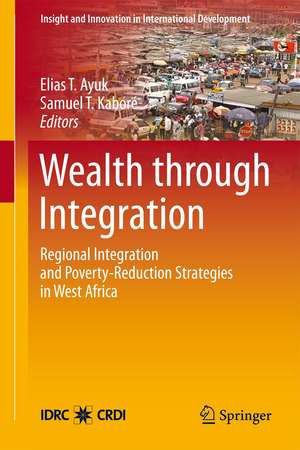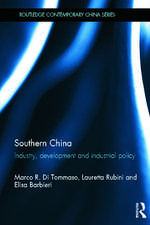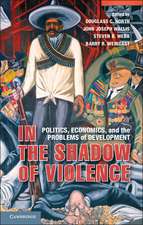Wealth through Integration: Regional Integration and Poverty-Reduction Strategies in West Africa: Insight and Innovation in International Development
Editat de Elias T. Ayuk, Samuel T. Kaboréen Limba Engleză Paperback – 22 oct 2013
This book explores the issues linked to regional integration in West Africa and presents empirical data about the experiences in = West African Economic and Monetary Union (WAEMU) countries to converge their economies. It also examines how these efforts, which make a major contribution to regional integration, influence poverty reduction in the economic and monetary community. It will be of interest to researchers working in this area.
Elias T. Ayuk is Director of the United Nations University Institute for Natural Resources in Africa in Accra, Ghana, and was formerly a senior program specialist at the International Development Research Centre. Samuel T. Kaboré is a researcher/lecturer at the Faculty of Economics and Management at the University of Ouagadougou II, BurkinaFaso.
Canada’s International Development Research Centre (IDRC) supports research in developing countries to promote growth and development. IDRC also encourages sharing this knowledge with policymakers, other researchers, and communities around the world. The result is innovative, lasting local solutions that aim to bring choice and change to those who need it most.
Elias T. Ayuk is Director of the United Nations University Institute for Natural Resources in Africa in Accra, Ghana, and was formerly a senior program specialist at the International Development Research Centre. Samuel T. Kaboré is a researcher/lecturer at the Faculty of Economics and Management at the University of Ouagadougou II, Burkina Faso.
Canada’s International Development Research Centre (IDRC) supports research in developing countries to promote growth and development. IDRC also encourages sharing this knowledge with policymakers, other researchers, and communities around the world. The result is innovative, lasting local solutions that aim to bring choice and change to those who need it most.
| Toate formatele și edițiile | Preț | Express |
|---|---|---|
| Paperback (1) | 641.71 lei 6-8 săpt. | |
| Springer – 22 oct 2013 | 641.71 lei 6-8 săpt. | |
| Hardback (1) | 646.62 lei 6-8 săpt. | |
| Springer – 21 noi 2012 | 646.62 lei 6-8 săpt. |
Preț: 641.71 lei
Preț vechi: 754.95 lei
-15% Nou
Puncte Express: 963
Preț estimativ în valută:
122.83€ • 133.47$ • 103.24£
122.83€ • 133.47$ • 103.24£
Carte tipărită la comandă
Livrare economică 21 aprilie-05 mai
Preluare comenzi: 021 569.72.76
Specificații
ISBN-13: 9781461448891
ISBN-10: 1461448891
Pagini: 324
Ilustrații: XXIV, 297 p. 33 illus., 21 illus. in color.
Dimensiuni: 155 x 235 x 17 mm
Greutate: 0.45 kg
Ediția:2013
Editura: Springer
Colecția Springer
Seria Insight and Innovation in International Development
Locul publicării:New York, NY, United States
ISBN-10: 1461448891
Pagini: 324
Ilustrații: XXIV, 297 p. 33 illus., 21 illus. in color.
Dimensiuni: 155 x 235 x 17 mm
Greutate: 0.45 kg
Ediția:2013
Editura: Springer
Colecția Springer
Seria Insight and Innovation in International Development
Locul publicării:New York, NY, United States
Public țintă
ResearchCuprins
INTRODUCTION: WHY INTEGRATE?.- CHAPTER 1: FIFTEEN YEARS OFWAEMU: RESULTS AND STRATEGIES FOR THE FUTURE.- DIERY SECK CHAPTER 2. GROWTH ANDCONVERGENCE IN AFRICA: A DYNAMIC PANELAPPROACH.- CHAPTER 3: HAS THERE BEEN REAL AND STRUCTURAL CONVERGENCE IN WAEMUCOUNTRIES?-. CHAPTER 4 THE IMPACT OF THE CONVERGENCE, STABILITY AND GROWTH PACTIN THE WAEMU.- CHAPTER 5: REAL CONVERGENCE IN THE WAEMU AREA: A BAYESIANANALYSIS.- CHAPTER 6: THE EFFECTS OF CREDIT CONSTRAINTS ON ECONOMICCONVERGENCE: THE CASE OF THE WAEMU COUNTRIES.- CHAPTER 7: FREE MOVEMENT OFGOODS IN WAEMU COMMUNITY LAW AND THE EUROPEAN UNION: A COMPARATIVE STUDY FROMTHE PERSPECTIVE OF TRADE.- CHAPTER 8: THE ROLE OF CASH TRANSFERS FROM MIGRANTSIN PROMOTING THE FINANCING OF ECONOMIC DEVELOPMENT IN WAEMU COUNTRIES.- CHAPTER9: EFFICIENCY OF CREDIT THAT TARGETS THE POOR: MEASURES AND APPLICATION OFAGRICULTURAL CREDIT IN BURKINA FASO.- CHAPTER 10: PERFORMANCE AND EFFECTIVENESSOF THE DECENTRALISED FINANCIAL SYSTEM AND POVERTY REDUCTION IN NIG.- CHAPTER11: FINANCING FARMING AND THE FOOD CRISIS IN AFRICA: WHAT ROLE CANMICRO-FINANCE PLAY?.- CHAPTER 12: COMMON EXTERNAL TARIFF (CET) AND TARGETINGTHE POOR IN MALI.- CHAPTER 13: HOW DOES COMMUNICATION ENRICH INTEGRATIONPOLICIES.- CHAPTER 14: CONCLUSIONS AND PERSPECTIVES: CREATING WEALTH FROMINTEGRATION.
Textul de pe ultima copertă
Could regional integration be a first step toward joining the global market? In a context where liberalizing trade has not produced the expected gains in developing countries and growth in global trade has not led to the expected economic growth, an alternative solution has emerged. This new paradigm suggests that trade liberalization should be accompanied by public investment. However, by its very nature, trade liberalization leads to a reduction in revenues from duties and taxes, which means that the available resources for public investments will also be reduced. There are now solid arguments for encouraging the less-developed countries to first emphasize regional integration before trying to access the global market.
This book explores the issues linked to regional integration in West Africa and presents empirical data about the experiences in = West African Economic and Monetary Union (WAEMU) countries to converge their economies. It also examines how these efforts, which make a major contribution to regional integration, influence poverty reduction in the economic and monetary community. It will be of interest to researchers working in this area.
This book explores the issues linked to regional integration in West Africa and presents empirical data about the experiences in = West African Economic and Monetary Union (WAEMU) countries to converge their economies. It also examines how these efforts, which make a major contribution to regional integration, influence poverty reduction in the economic and monetary community. It will be of interest to researchers working in this area.
Caracteristici
The Euro crisis recently experienced by European countries has demonstrated the importance of the convergence criteria for regional integration African countries increasingly recognize that regional integration can play an important role in poverty reduction Examines how the efforts towards regional integration can influence poverty reduction in the economic and monetary community? Includes supplementary material: sn.pub/extras














